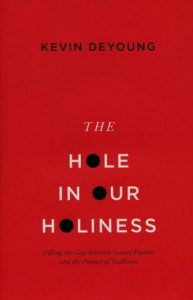Greg Forster’s Joy for the World: How Christianity Lost Its Cultural Influence and Can Begin Rebuilding It is a welcome, winsome, and wise contribution to how Christians can hope to make a realistic difference in the world. After compellingly and convincingly tracing how Christianity has lost its cultural influence to a certain degree (very interesting!), Forster invites Christians to seek primarily to make cultural influence by being joyful Christians as we humbly fulfill our callings in our homes, workplaces and communities.
Forster defines joy in this way: “I’m not talking about an emotion. I mean the state of flourishing in mind, heart, and life that Christians experience by the Holy Spirit.” What makes us different as Christians is the radical reality that we have Jesus’ joy through the Spirit, and this joy changes the cultural atmosphere where we raise families, live, and work—and this is good. He writes: “We’ve been so anxious to influence society in the past century that we’ve ended up going after a lot of shortcuts. For some it’s politics, for some it’s education, for some it’s evangelism. We’ve been pulling a lot of levers. The common thread is that we’re pulling levers so hard, we leave no space for people to encounter the joy of God.†Forster desires for Christians to avoid unhealthy triumphalism in our approach to culture on the one hand, while also steering clear of unrealistic and unhealthy separationism from the culture around us.
In his book, Forster emphasizes properly and clearly that the Church is both an organization and an organism and that these should be distinguished in our cultural engagement. The Church as organization must be faithful in the preaching of God’s Word, administering the Sacraments, encouraging fellowship and discipline. The Church as organism consists of living, embodied people who are citizens of two worlds, two cities, or two kingdoms, who are called to live out their different vocations in an infectious and joyful manner doing all for the glory of God.
While Forster reiterates some of the important arguments of other cultural Christian writers of our time, he uniquely offers very practical and accessible ways of engaging culture that Christians can use in their everyday lives. It is obvious that Forster is an expert on this subject, and what impressed me as I read this book was that he teaches in a very humble and thoughtful manner. In fact, the joy that he encourages Christians to display in culture comes through in his writing. I agree with others who have reviewed this book that the book should be on required reading lists in colleges, used in worldview and cultural seminars, and on book tables at local congregations.
My only criticism would be that this important book should have had a more appropriate cover to it. While we’re taught not to judge a book by its cover, we often will. This cover gives a sort of pop- culture kind of feel to the book that I thought undermined the importance and depth of the actual text and message. I would recommend it be given a cover that is more consistent with the message, and perhaps even edit down this longer book to be a shorter book that could be available to a more popular audience? An idea.
Charles R. Biggs
Purcellville, VA
Joy for the World:Â How Christianity Lost Its Cultural Influence and Can Begin Rebuilding It
by Greg Forster (Crossway, 2014)
$15.90 paperback via Amazon
